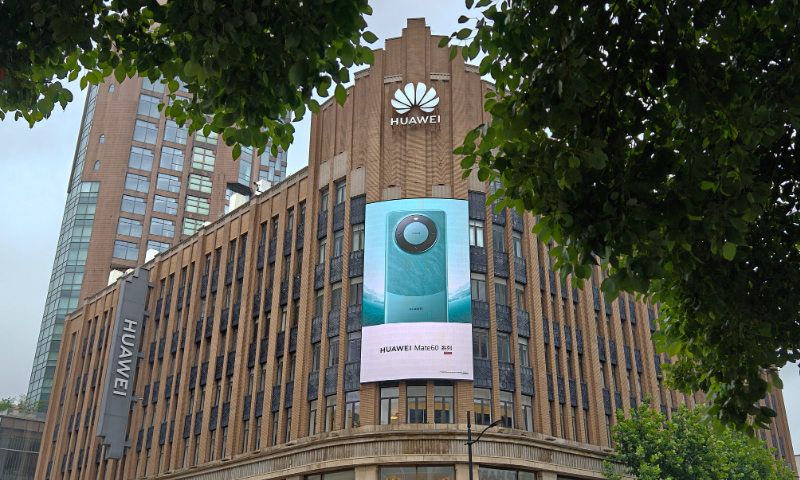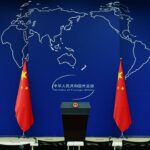Although some mainstream US media and the US government maintain a “reserved” style of silence, Huawei’s latest flagship mobile phone, Mate 60 Pro, continues to send shockwaves in the US public opinion field. Bloomberg commissioned a professional organization to disassemble the new phone, looking for clues about how far China’s technology has gone. Some simply claimed that the development was a “slap in the face” to the US. We can feel that the shock shown by American public opinion is real. It boils down to two main questions: Has Huawei succeeded? Has America failed?
As a company, what mobile phones Huawei launches and what technologies it uses have nothing to do with the US and should not attract such attention. Disassembling devices is a routine practice for professionals in the technology industry to understand new products, and it is mostly a personal activity. However, it is abnormal for the US media to commission organizations to disassemble a mobile phone, making a big fuss about it.
Just imagine, if a China media “disassembled” an iPhone with a “search” mentality to analyze what new technologies it has developed with a magnifying glass, it would obviously be considered “senseless.” And frankly speaking, Chinese society as a whole is happy to see technological advancement of American products. Almost no one would think that those advancements mean China’s failure, and no one would feel that it is a “slap in the face.” The actions of disassembling a phone ultimately reflect Washington’s pathological psychology.
The reason why some American elites are surprised is that they generally believe that China cannot make high-end chips on its own. According to Kevin Klyman, a technology policy researcher at Harvard University, the US has done its best to undermine China’s semiconductor industry by taking a really unprecedented step and launching a surgical strike on that industry. He also said that “It has been an extraordinary success beyond anyone’s wildest dreams that the Netherlands and Japan have joined US export controls to the hilt.”However, due to such crazy suppression, things suddenly appeared beyond “control” in the areas that the US considered most confident and critical. For some politicians in Washington with extremely distorted mentality toward China, this is enough to overwhelm them.
We advise some Americans to deconstruct and reconstruct their concept of China’s technical development and innovation, in addition to disassembling smartphones. In recent years, not only Huawei but also many other Chinese enterprises have made substantial headway in areas where the US pushed to ban China, such as aerospace, photovoltaics and energy. China has achieved tremendous breakthroughs in these areas and has brought more technological dividends to the world. Thereby, we establish closer ties with the international community. It is reasonable to say that China’s tendency toward high-level technological self-reliance and self-strengthening is irreversible. As many Chinese netizens have said: those who cannot kill us will eventually strengthen us.
Some US media have conducted “self-reflection” on Huawei’s launch of a new phone series, saying that “Huawei chip shows US curbs are porous, not useless.” This kind of thinking is like trying to forcefully build a dam in the middle of rushing waves, without considering whether the water can be stopped. In the end, they will find that they have spent a great deal of effort to build an island that traps themselves. Unfortunately, we have not seen Washington deeply reflect on why its restrictions and suppressions have failed and whether some policy measures were wrong, nor have we seen corresponding adjustments being made.
When a Chinese manufacturer releases a new gadget, people in the US will be busy disassembling it with political motives. When China signs a cooperation agreement with another country, the US quickly eavesdrops and goes to that country to “lobby.” Sure, let Washington go through these troubles. This kind of self-torment will ultimately consume US’ national strength, not China’s. Facts have repeatedly proven that US suppression will only strengthen China’s determination for independent innovation, self-reliance and opening-up to the outside world. China’s progress cannot be stopped.
It is exceedingly abnormal for one country to regard another country’s technical advancement as a threat. In today’s deeply globalized society, any technical advancement will eventually benefit all of humanity. The primary criterion for measuring its success is the number of people who will benefit from the technical rewards it brings. In this sense, if Washington continues to cling to a “small yard, high fence” mentality, it will only move further away from its expected “victory.”
(Global Times)




